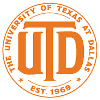
South Central NA Regional Contest
ICPC South Central North America welcomes teams from Louisiana, Oklahoma, and Texas!
Here is a rough schedule of events for the day of the regional contest. The final schedule might vary across different sites.
The South Central Regionals are an in-person contest. The following sites are available for the 2023–2024 contest:
Additional Regional Leadership
Regional Contest Directors: Etienne Vouga
Deputy Regional Directors: Kathy Traxler, Isaac Traxler
Head Judge (of the Big South): Bowen Yu
Advisory Council: Brent Baas, Chalam Chitturi, Glenn Downing, Andrew Fagg, John Keyser, Ian Riley, Nouhad Rizk
The International Collegiate Programming Contest is an algorithmic programming contest for college students. Teams of three, representing their university, work to solve the most real-world problems, fostering collaboration, creativity, innovation, and the ability to perform under pressure. Through training and competition, teams challenge each other to raise the bar on the possible. Quite simply, it is the oldest, largest, and most prestigious programming contest in the world.
New to ICPC?
Welcome new teams! This page has some basic information to help you get started. David van Brackle, the Contest Director of the Southeast Region, has also created a video explaining how an ICPC contest works.
Contest Structure
- The contest is five hours long. You will be given a problem set with at least 10 problems on it; your goal is to solve as many of these problem as you can before the contest ends.
- Your team will have access to one computer that all three team members share. While one team member codes up a solution to a problem, the other team members might think about how to solve other problems, sketch out a solution on paper, debug a previous submission attempt, etc.
- You can write your solutions in any of the following languages: C++, Python, Java, or Kotlin. Your programs read the problem inputs from standard input and write the answers to standard output.
- You will be provided a few sample test cases for each problem. The judges have also prepared secret test cases. When you submit a problem solution, your code will run on these secret test cases and you will be given limited feedback about your submission:
- Accepted: your code passes all test cases, and you have successfully solved the problem!
- Compile Error: your code did not compile, for some reason. In this case you will also be given the compiler error log.
- Wrong Answer: your code produced incorrect ouput. You will not be told which test case you failed: you must debug your code on your own.
- Time Limit Exceeded/Memory Limit Exceeded: your code was too slow or took too much memory on some test case.
- Runtime Error: your code crashed or threw an uncaught exception.
- You can attempt each problem as many times as you want until your solution is accepted; however each failed attempt accrues a penalty that is taken into account when breaking ties between teams that solve the same number of problems.
Training Resources
- Kattis has a large database of past ICPC problems, and an online judge that you can use to practice submitting solutions. Kattis hosts many problems from past South Central Regionals.
- ICPC North America has hosted several practice contests. More practice contests might be posted there in the future; in addition, you can still solve problems from the old contests using the online judge.
- You are allowed to bring printed materials with you to use during the Regionals contest. We recommend bringing an algorithms textbook and course notes. You may also bring printed code snippets for common algorithms that you might need during the contest. You can find several such source code “reference documents” online: one popular 25-page C++ reference document is KTH’s KACTL.
- There are several other popular online judges and problem databases that are commonly used for training, including CodeForces, CSES, and the Baekjoon Online Judge. (Please note that these sites are not associated with ICPC and their problems may not conform to the ICPC rules or style.)
Division I or Division II?
Your team may compete in either Division I or Division II. Both contests take place at the same time and at the same sites.
Division I is intended for seasoned competitive programmers who have finished taking the core algorithms curriculum in college, and who are familiar with how competitive programming works and with problem-solving techniques specific to competitive programming. The South Central Regionals strive to provide Division I teams with a fair, challenging, and rewarding opportunity to show off their skill as they compete for spots in the North America Championship.
Division II is intended for teams who are still familiarizing themselves with competitive programming or who haven’t yet finished undergraduate algorithms classes. In addition to an easier problem set, Division II has relaxed rules about judge feedback during the contest: judges in Division II may help teams struggling with operating the contest system or with debugging a problem submission. We hope to give all Division II teams a fun and rewarding experience that they can use to train for Division I in a future year!
To help decide which Division to compete in, you might take a look at a previous year’s Division I and Division II problem sets.
North America Qualifier (NAQ)
The NAQ is an annual ICPC-style online contest. Despite its name, participating in the NAQ is not required to register for the South Central Regionals. However, competing in the NAQ is great practice for the Regionals, since it uses a similar contest environment and problem style, and your coach might use it to select which teams register for the Regionals if your school has more than four teams.
The 2024–2025 NAQ will take place on Saturday, October 5. More information, including registration instructions, are here.
The South Central Regionals conform to the Official ICPC Rules for Regionals. This page reiterates and clarifies some key points from the official rules, and lists some additional rules specific to the region.
Team Composition
Each team must have exactly three students and all team members must satisfy the team member eligibility requirements listed in the official rules. Coaches may request substitutions for contestants who are unable or unwilling to compete on the day of the contest, provided that the coach notifies the Regional Contest Director in a timely manner. Such substitutions must not violate other rules of team composition.
Schools may register at most four teams in total across both Divisions I and II. For schools with more than 12 students wishing to compete, it is up to the school’s faculty sponsor or coach to determine which team(s) to send to the Regionals. Team registrations will be accepted from each school on a first-come, first-served basis.
Conduct of the Regional Contest
- There will be two divisions. Division I is recommended for algorithmically strong teams with previous competitive programming experience. Division II features more approachable problems for teams that have not completed the algorithm sequence at their school and/or have not competed in programming contests before. Division II teams may also receive additional help during the contest from the contest judges. Only Division I teams are eligible to advance to the North America Championship. Please see the Getting Started page for additional information about the two divisions.
- The contest will be conducted in a GNU/Linux environment. The programs can be submitted in C, C++, Java, Python 3, and Kotlin. Kattis will be used as the contest control system.
- Problems will be posed in English. During the contest, all communications with contest officials must be in English.
- Contestants may bring any reasonable amount of human readable material, including books, manuals and printed code. (Teams from the same school may not share these resources.) Contestants may also bring scrap paper, pencils and pens, snacks, and other similar non-electronic material at the discretion of the Site Director.
- Contestants will be provided a contest t-shirt and badge at the contest site. They must wear this shirt as their outermost layer of clothing and must wear their badge at all times during the contest.
- Contestants may not bring electronics of any kind onto the contest floor. Cell phones, calculators, electronic watches, earbuds, etc. are not permitted. Contestants may not bring their own keyboards, monitors, or other electronic peripherals. Exceptions may be made for accessibility reasons at the discretion of the Regional Contest Director if requested well in advance.
Scoring of the Contest
The South Central Regional is part of and shares problems with the Big South Division, which also includes the Southeast and Mid-Atlantic Regions. The Judges of the Big South are solely responsible for determining the correctness of submitted runs. In consultation with the Judges, the Head Judge of the Big South is responsible for determining the winners of the contest. They are empowered to adjust for or adjudicate unforeseen events and conditions. Their decisions are final.
Teams are ranked according to the most problems solved. Teams who solve the same number of problems are ranked first by least total time and, if need be, by the earliest time of submittal of the last accepted run. Teams are ranked separately in Division I and II.
The total time is the sum of the time consumed for each problem solved. The time consumed for a solved problem is the time elapsed from the beginning of the contest to the submittal of the first accepted run plus 20 penalty minutes for every previously rejected run for that problem. There is no time consumed for a problem that is not solved. No penalty minutes are assessed for submissions that fail to compile.
Only Division I teams may advance to the North America Championship. Only one team per school may advance. Teams will be allocated slots at the Championship in rank order, skipping any teams ineligible due to a higher-ranking team from the same school already advancing.
2023–2024 South Central Regionals
The South Central USA ICPC Programming contest was February 24, 2024. Congratulations to the teams moving on to North America Championship:
- Rice University: Better Call the WAMbulance
- Texas A&M: FINALB0SS
- University of Texas at Austin: UT Orange
- University of Texas at Dallas: whoosh
The final standings:
Division I:






